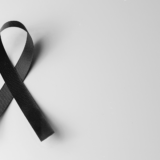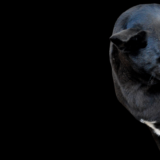The Invisible Dad

From the top…
A dad is something I had wanted to be for a long while. The journey that me and my wife had to undertake to get our son was emotionally intense, as a couple of major barriers stood in our way; my wife’s heart condition and struggling to conceive naturally.
Let’s start with my wife Claire; she has a heart condition called Transposition of the Great Arteries, where the two main arteries in the heart are switched around, meaning that the blood flows to the lungs and picks up oxygen but then goes straight back to the lungs instead of around the body, and the blood flowing around the body is unable to reach the lungs to pick up oxygen. This was corrected through the Senning procedure, but because of the condition, we had regular meetings with cardiologists to establish any issues that could affect Claire’s safety during a pregnancy and the birth. Multiple tests concluded that she had around a 5% chance of something happening to her heart be it small – such as changes whilst pregnant which would resolve after having the baby – to severe, as in permanent changes and even death. The other element was the risk to the baby having a congenital heart defect. The chances of a baby having congenital heart defect is between 4 and 9 per 1000 which is less than 1%. In Claire’s case, taking into account her sister’s and her own congenital heart defects, the risk of our baby having a defect was 10%, which was a massive increase.
Secondly was getting pregnant naturally, and this had its own set of trials and tribulations. After a year of trying unsuccessfully, the decision was made to refer us for fertility tests earlier than usual due to the potential of heart function changes. We were referred to the assisted conception unit (ACU) in Sheffield to begin tests to determine if there were any causes to us being unable to conceive. The results revealed Polycystic Ovary Syndrome (PCOS) for Claire and Oligospermia for me, meaning IVF was the best option for us to conceive. After a long process of ethics meetings – to establish if it was ethical for us to have children based on the heart risk stats – and egg and sperm collections, we had 8 fertilised from the 16 collected. By the point of implantation we had just one embryo remaining, and that one was Isaac.
All this made my desire and excitement to be a father almost palpable. I decided from this point that I would be involved with everything in my child’s life and be as good a dad as possible, never regretting my time with him/her.
Fast forward to the 12th October 2012, the day Isaac James Webster was released into the world, dragged out by his head with some forceps that looked like salad servers. From that point I was a dad, I was responsible for this tiny life and he would depend on me, as a part of the parenting unit, until his 18th birthday. Terrifying doesn’t even come close to describing how that feels. However, it doesn’t take long to get to grips with the routine of how to care for a baby and in no time I was enjoying fatherhood and proud to call this gorgeous boy my own.
The rise of The Invisible Dad…
I realised that I was becoming transparent a little before Isaac was born. My first experience was whilst out shopping for nursery furniture and pram. These initial purchases are exciting reminders of what’s to come and help put into perspective that the bump that is slowly expanding will soon become a real life baby. Therefore, walking around Mamas and Papas became the most exciting shopping trip I had ever been a part of – and as a guy, that is a big thing. After some back and forth decision making, we finally chose the perfect furniture set and pram. We found a sales person to speak with and ask a couple of questions and it was here that I began to fade. Despite the question and route that the conversation took, the salesperson’s gaze stayed fixed on Claire, only to glance at me when I directed questions, but that attention soon waned and reverted back to my wife. On the drive home I thought to myself that this was a particularly odd event and must be a one-off occurrence. Not the case.
Moving forward in time to just after Isaac’s birth, and we were looking at attending a baby group for new-ish parents at our local children’s centre. Meeting other parents is an essential part of being parent. Am I doing things right? Should he poo this much and should it look like that? Is he sleeping too much? So many questions and concerns run through your head and having someone in a similar situation to chat to is a great way to calm down and feel reassured that Social Services aren’t looming in the darkness, poised to pounce at the smallest mistake. As we walked into the open plan room and sat on the padded mat on the floor, I realised that I was the only man in a circle of women, women that looked at me like I had wandered in by mistake. Luckily, Claire had made a couple of friends that made me feel welcome, because the others were definitely not open to chit chat and even found looking at me quite a challenge. Sufficed to say, I didn’t attend on a second occasion.
Now, I understand that some dads, some dads, aren’t interested in meeting other mums and dads for coffee and cake, or doing their share of the nitty gritty, but that isn’t every dad and therefore shouldn’t be treated as such. It seems that dads are expected to be rubbish; by health care professionals, by shop assistants, by work colleagues, by mums – the comments and jokes trickle in as soon as your baby is born, one example being; “A mother’s bond will always be better than the dad’s, because a mother does more for the child.” Experiencing a group of women complaining about their partners and how ‘men’ are almost untrustworthy in parental situations, as if I am not stood with them, only served to phase me out further.
The Importance of Being Dad
Society tells us how to be a dad. What should a dad do? How should a dad be? Is a dad important? We learn these answers through relationships, with our own dads and with others in our friendship groups, and through the media. Advertising for baby paraphernalia is consistently promoted to a female audience and serves to perpetuate the ‘mother knows best’ train of thought. To enable us to redress the balance, more education, support and communication is required not only for dads and mums, but also for society as a whole, to help them understand that parenting is a partnership and both have the same responsibilities and are just as important as each other. Otherwise, the same stereotypes will recycle.
The cure for Invisibility is Equality.







carolinelandrygan
I am glad you wrote about this Paul. I often think dads are under appreciated in our society. The idea that dads have no direct involvement in child care is archaic and sexist. Matthew is the sole ‘parent’ in my step children’s lives, yet society fail to recognise his position as a dad with full time custody of his kids . He can’t possibly be their everything because he’s ‘only’ a dad, yet women in his position are common, accepted and praised as heroic. Think it’s about time that fathers get the recognition they deserve; as a full half of the parenting equation. Just as capable as a mother in every way.
Jonathan
Great post, I really agree with what you say about how dads are represented in the media and how baby products are often marketed towards mums rather than parents. It really annoys me to see stores that have ‘parenting clubs’ that appear almost exclusively focused on mums. As you say, this perpetuates stereotypes and doesn’t help to promote equality.
gingerwebster
Being a dad is the most important part of my life and I do just as much as my wife in caring for my son, but feel that society still see me as a second-class parent and that I will never stand up to what a mum can do. I hope that this changes, but it has to start with people’s preconceptions.
Jonathan
It’d be good to see society catching up with the times given that the notion of the ‘new man’ (whatever that means) has been talked about since the 1980s at least. The increasing numbers of dad bloggers is a sign that dads are keen to involve themselves in parenting and discussing parenting. There was an article in The Guardian about this phenomenon a while a back.
gingerwebster
This idea of the ‘new man’ is all well and good, but it needs to be backed up to progress to true equality. Paternity leave is a key issue and the massive difference in time length compared to maternity leave, is a clear example of how far behind society is in terms of equal rights. Two weeks to allow a father to not only bond with his child, but also get to grips with being a dad, is no time at all. Only time will tell if changes will happen, but I hope that for future dads it does.
Jonathan
Totally agree with you about paternity leave. I’ve done a few blog posts on the topic myself, both giving my views on the system and talking about my own experience. It’s good that the UK is slowly moving towards something closer to the sort of system that’s in place in some Scandinavian countries.
Gary S.
slow yer horses chaps… did you forget about this thing called breastfeeding? how sextet of nature!